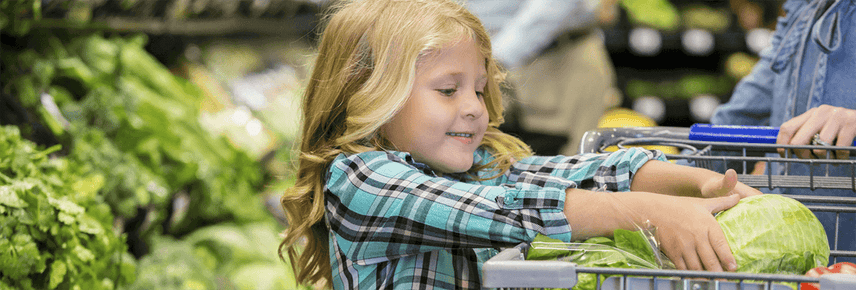Food, health and nutrition myths abound across the internet and in the media. Many of them make diets restrictive and take the enjoyment out of eating. Here we bust some of the most common food myths around today.
Myth: Coconut oil is good for you
Fact: There is very little (if any) scientific support for many of the claims that have been made about the health benefits and healing qualities of coconut oil. Although coconut oil may be better for your cholesterol levels than butter, it still is 90% saturated fat! While it can increase good ‘HDL’ cholesterol it also increases bad ‘LDL’ cholesterol.
While a small amount of coconut oil is okay occasionally, quality unsaturated fats like olive oil or canola oil are a better choice for health. They not only help to increase good ‘HDL’ cholesterol but more importantly decrease bad ‘LDL’ cholesterol too.
Myth: Carob is healthier than chocolate
Fact: Carob is often used as a chocolate substitute and many believe carob is healthier.
While pure carob does contain dietary fibre, B vitamins, antioxidants, and no caffeine or theobromine, we generally buy carob in bars and other confectionery. Just like chocolate, these usually come with added sugar and fat. So, unless you're eating pure carob, there're not many health advantages to choosing carob over chocolate.
Myth: Milk increases mucus production
Fact: While some people believe that dairy milk and other dairy products increase mucus production, this has not yet been confirmed by research. According to the Australasian Society of Clinical Immunology and Allergy, the feelings of mucus after consuming dairy milk are due to the thickness and texture of milk itself and not because there’s an increase in mucus production.
Myth: Canola oil is bad
Fact: Canola oil has been mistakenly labelled as a ‘bad oil’. This is probably because it's often mistaken for rapeseed oil but they're not the same. While they come from the same family, canola has had the poor qualities still found in rapeseed oil removed through traditional plant breeding techniques.
Canola oil offers health benefits – particularly in lowering cholesterol levels and reducing your risk of heart disease – and is recommended by the National Heart Foundation as a healthy oil to use in cooking.
Myth: Skipping breakfast helps you lose weight
Fact: Some people skip breakfast to cut their food intake and try to lose weight, but research shows the opposite is actually true. In fact, a recent study found that front-loading calories to eat proportionately more in the morning might help us to feel less hungry throughout the day compared with eating later in the evening. This may be especially true of brekkies that are high in fibre and protein, and low GI, working to help keep you fuller for longer and less likely to snack on high-fat and sugary foods mid-morning. Studies show people who skip breakfast, especially children and mothers, are likely to weigh more than regular breakfast eaters.
Myth: You need to eat meat to get enough protein
Fact: Nuts, seeds, legumes and wholegrains are all sources of protein – and eating a variety of protein rich plant foods (legumes, wholegrains, nuts, seeds) each day can give your body all the protein it needs for good health. The key is to eat a variety of these foods every day to make sure you get the best balance of essential amino acids. Some foods such as soy beans, quinoa and amaranth are particularly high in quality plant protein and provide all of the essential amino acids you need in the one food.
Compared to meat, plant protein foods offer the additional benefits of fibre, low amounts of saturated fat, vitamins and minerals like iron and zinc and thousands of antioxidants and phytochemicals. Harvard University researchers say that eating more plant proteins and less meat protein offers you greater protection against chronic diseases like heart disease and diabetes.
Myth: All fats are bad for you
Fact: Healthy fats are essential for good health and have been shown to protect us from a range of chronic diseases, especially heart disease. Healthy fats include monounsaturated and polyunsaturated fats, found in nuts and seeds, olives, olive oil, and avocados. They also include omega-3 fatty acids found in oily fish, walnuts, linseeds or flaxseeds, chia seeds and soybeans. Healthy fats have been shown to help decrease ‘bad’ LDL cholesterol and increase ‘good’ HDL cholesterol, reducing your risk of heart disease.
For more dietitian-reviewed articles and tips on how to keep your heart healthy visit our cholesterol resource centre.
Myth: Avoiding carbs after 5pm will help you lose weight
Fact: There is nothing magical about avoiding carbs after 5pm. There is no consistent research to support the theory and no health authorities endorse this type of approach. This practice is particularly dangerous for individuals with diabetes who are taking insulin or other blood glucose lowering medication. Instead, try eating 2-3 hours before sleeping and keep an eye on your portions.
Does a carb curfew work for weight loss? For those who tend to eat large meals at night, this is an easy calorie cutting strategy. However, if you're trying to lose weight, it’s better to consider the amount of food you’re eating not just at that evening meal, but across the whole day and the quality of your carbs. A small serving of high fibre, wholegrain carbs such as brown rice will actually help keep you fuller for longer and balance blood sugar levels. Combining your carbs with protein will further help to keep you feeling satisfied after the meal. Avoiding carbs altogether can mean that you end up snacking after dinner because you’re still hungry.
Myth: Fresh vegetables are more nutritious than frozen
Fact: Research has consistently found fresh and frozen vegetables to have a similar nutritional value, with frozen vegetables actually sometimes having more. With so many people struggling to eat enough vegetables each day, having a steady supply of vegetables handy in the freezer can be an easy and cost effective way to eat more. That said, growing your own vegetables in your garden and eating them shortly after picking is a highly nutritious and super cheap way to get in more of the good stuff!

)


